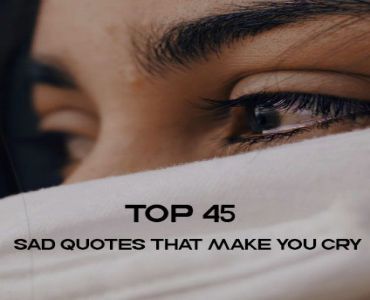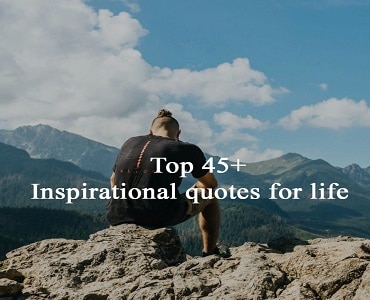Bell Hooks Quotes
1. “Usually adult males who are unable to make emotional connections with the women they choose to be intimate with are frozen in time, unable to allow themselves to love for fear that the loved one will abandon them. If the first woman they passionately loved, the mother, was not true to her bond of love, then how can they trust that their partner will be true to love. Often in their adult relationships these men act out again and again to test their partner’s love. While the rejected adolescent boy imagines that he can no longer receive his mother’s love because he is not worthy, as a grown man he may act out in ways that are unworthy and yet demand of the woman in his life that she offer him unconditional love. This testing does not heal the wound of the past, it merely reenacts it, for ultimately the woman will become weary of being tested and end the relationship, thus reenacting the abandonment. This drama confirms for many men that they cannot put their trust in love. They decide that it is better to put their faith in being powerful, in being dominant.”
2. “When we face pain in relationships our first response is often to sever bonds rather than to maintain commitment.”
3. “Genuine love is rarely an emotional space where needs are instantly gratified. To know love we have to invest time and commitment…’dreaming that love will save us, solve all our problems or provide a steady state of bliss or security only keeps us stuck in wishful fantasy, undermining the real power of the love — which is to transform us.’ Many people want love to function like a drug, giving them an immediate and sustained high. They want to do nothing, just passively receive the good feeling.”
4. “If any female feels she need anything beyond herself to legitimate and validate her existence, she is already giving away her power to be self-defining, her agency.”
5. “I will not have my life narrowed down. I will not bow down to somebody else’s whim or to someone else’s ignorance.”
6. “Knowing how to be solitary is central to the art of loving. When we can be alone, we can be with others without using them as a means of escape.”
7. “For me, forgiveness and compassion are always linked: how do we hold people accountable for wrongdoing and yet at the same time remain in touch with their humanity enough to believe in their capacity to be transformed?”
8. “All too often women believe it is a sign of commitment, an expression of love, to endure unkindness or cruelty, to forgive and forget. In actuality, when we love rightly we know that the healthy, loving response to cruelty and abuse is putting ourselves out of harm’s way.”
9. “As all advocates of feminist politics know most people do not understand sexism or if they do they think it is not a problem. Masses of people think that feminism is always and only about women seeking to be equal to men. And a huge majority of these folks think feminism is anti-male. Their misunderstanding of feminist politics reflects the reality that most folks learn about feminism from patriarchal mass media.”
10. “Living simply makes loving simple.”
11. “Love is a combination of care, commitment, knowledge, responsibility, respect and trust.”
12. “Often men who have been emotionally neglected and abused as children by dominating mothers bond with assertive women, only to have their childhood feelings of being engulfed surface. While they could not ‘smash their mommy’ and still receive love, they find that they can engage in intimate violence with partners who respond to their acting out by trying harder to connect with them emotionally, hoping that the love offered in the present will heal the wounds of the past. If only one party in the relationship is working to create love, to create the space of emotional connection, the dominator model remains in place and the relationship just becomes a site for continuous power struggle.”
13. “To return to love, to get the love we always wanted but never had, to have the love we want but are not prepared to give, we seek romantic relationships. We believe these relationships, more than any other, will rescue and redeem us. True love does have the power to redeem but only if we are ready for redemption. Love saves us only if we want to be saved.”
14. “No black woman writer in this culture can write “too much”. Indeed, no woman writer can write “too much”…No woman has ever written enough.”
15. “Being oppressed means the absence of choices”
16. “the wounded child inside many males is a boy who, when he first spoke his truths, was silenced by paternal sadism, by a patriarchal world that did not want him to claim his true feelings. The wounded child inside many females is a girl who was taught from early childhood that she must become something other than herself, deny her true feelings, in order to attract and please others. When men and women punish each other for truth telling, we reinforce the notion that lies are better. To be loving we willingly hear the other’s truth, and most important, we affirm the value of truth telling. Lies may make people feel better, but they do not help them to know love.”
17. “I am passionate about everything in my life–first and foremost, passionate about ideas. And that’s a dangerous person to be in this society, not just because I’m a woman, but because it’s such a fundamentally anti-intellectual, anti-critical thinking society. –bell hooks”
18. “Individuals who want to believe that there is no fulfillment in love, that true love does not exist, cling to these assumptions because this despair is actually easier to face than the reality that love is a real fact of life but is absent from their lives.”
19. “The practice of love offers no place of safety. We risk loss, hurt, pain. We risk being acted upon by forces outside our control.”
20. “The process begins with the individual woman’s acceptance that American women, without exception, are socialized to be racist, classist and sexist, in varying degrees, and that labeling ourselves feminists does not change the fact that we must consciously work to rid ourselves of the legacy of negative socialization.”
21. “But many of us seek community solely to escape the fear of being alone. Knowing how to be solitary is central to the art of loving. When we can be alone, we can be with others without using them as a means of escape.”
22. “Visionary feminism is a wise and loving politics. It is rooted in the love of male and female being, refusing to privilege one over the other. The soul of feminist politics is the commitment to ending patriarchal domination of women and men, girls and boys. Love cannot exist in any relationship that is based on domination and coercion. Males cannot love themselves in patriarchal culture if their very self-definition relies on submission to patriarchal rules. When men embrace feminist thinking and preactice, which emphasizes the value of mutual growth and self-actualization in all relationships, their emotional well-being will be enhanced. A genuine feminist politics always brings us from bondage to freedom, from lovelessness to loving.”
23. “One of the best guides to how to be self-loving is to give ourselves the love we are often dreaming about receiving from others. There was a time when I felt lousy about my over-forty body, saw myself as too fat, too this, or too that. Yet I fantasized about finding a lover who would give me the gift of being loved as I am. It is silly, isn’t it, that I would dream of someone else offering to me the acceptance and affirmation I was withholding from myself. This was a moment when the maxim “You can never love anybody if you are unable to love yourself” made clear sense. And I add, “Do not expect to receive the love from someone else you do not give yourself.”
24. “Contrary to what we may have been taught to think, unnecessary and unchosen suffering wounds us but need not scar us for life. It does mark us. What we allow the mark of our suffering to become is in our own hands.”
25. “Honesty and openness is always the foundation of insightful dialogue.”
26. “Think of all the women you know who will not allow themselves to be seen without makeup. I often wonder how they feel about themselves at night when they are climbing into bed with intimate partners. Are they overwhelmed with secret shame that someone sees them as they really are? Or do they sleep with rage that who they really are can be celebrated or cared for only in secret?”
27. “I want there to be a place in the world where people can engage in one another’s differences in a way that is redemptive, full of hope and possibility. Not this “In order to love you, I must make you something else”. That’s what domination is all about, that in order to be close to you, I must possess you, remake and recast you.”
28. “To love well is the task in all meaningful relationships, not just romantic bonds.”
29. “Love is an action, never simply a feeling.”
30. “Relationships are treated like Dixie cups. They are the same. They are disposable. If it does not work, drop it, throw it away, get another.
31. Committed bonds (including marriage) cannot last when this is the prevailing logic. Most of us are unclear about what to do to protect and strengthen caring bonds when our self-centered needs are not being met.”
32. “The function of art is to do more than tell it like it is-it’s to imagine what is possible.”
33. “Giving generously in romantic relationships, and in all other bonds, means recognizing when the other person needs our attention. Attention is an important resource.”
34. “Individual heterosexual women came to the movement from relationships where men were cruel, unkind, violent, unfaithful. Many of these men were radical thinkers who participated in movements for social justice, speaking out on behalf of the workers, the poor, speaking out on behalf of racial justice. However when it came to the issue of gender they were as sexist as their conservative cohorts.”
35. “I still think it’s important for people to have a sharp, ongoing critique of marriage in patriarchal society — because once you marry within a society that remains patriarchal, no matter how alternative you want to be within your unit, there is still a culture outside you that will impose many, many values on you whether you want them to or not. ”
36. “Emotional neglect lays the groundwork for the emotional numbing that helps boys feel better about being cut off. Eruptions of rage in boys are most often deemed normal, explained by the age-old justification for adolescent patriarchal misbehavior, “Boys will be boys.” Patriarchy both creates the rage in boys and then contains it for later use, making it a resource to exploit later on as boys become men. As a national product, this rage can be garnered to further imperialism, hatred and oppression of women and men globally. This rage is needed if boys are to become men willing to travel around the world to fight wars without ever demanding that other ways of solving conflict can be found.”
37. “If you do not know what you feel, then it is difficult to choose love; it is better to fall. Then you do not have to be responsible for your actions.”
38. “We fear that evaluating our needs and then carefully choosing partners will reveal that there is no one for us to love. Most of us prefer to have a partner who is lacking than no partner at all. What becomes apparent is that we may be more interested in finding a partner than in knowing love.”
39. “It still took years for me to let go of learned patterns of behavior that negated my capacity to give and receive love. One pattern that made the practice of love especially difficult was my constantly choosing to be with men who were emotionally wounded, who were not that interested in loving, even though they desired to be loved. I wanted to know love but was afraid to be intimate. By choosing men who were not interested in being loving, I was able to practice giving love but always within an unfulfilling context. Naturally, my need to receive love was not met. I got what I was accustomed to getting. Care and affection, usually mingled with a degree of unkindness, neglect, and on some occasions, out right cruelty.”
40. “When we drop fear, we can draw nearer to people, we can draw nearer to the earth, we can draw nearer to all the heavenly creatures that surround us.”
41. “All our silences in the face of racist assault are acts of complicity.”
42. “There will be no mass-based feminist movement as long as feminist ideas are understood only by a well-educated few.”
43. “A generous heart is always open, always ready to receive our going and coming. In the midst of such love we need never fear abandonment. This is the most precious gift true love offers – the experience of knowing we always belong.”
44. “One of the most subversive institutions in the United States is the public library..”
45. “We have to constantly critique imperialist white supremacist patriarchal culture because it is normalized by mass media and rendered unproblematic.”
46. “To build community requires vigilant awareness of the work we must continually do to undermine all the socialization that leads us to behave in ways that perpetuate domination.”
47. “Dominator culture has tried to keep us all afraid, to make us choose safety instead of risk, sameness instead of diversity. Moving through that fear, finding out what connects us, revelling in our differences; this is the process that brings us closer, that gives us a world of shared values, of meaningful community.”
48. “Justice demands integrity. It’s to have a moral universe — not only know what is right or wrong but to put things in perspective, weigh things. Justice is different from violence and retribution; it requires complex accounting.”
49. “The first act of violence that patriarchy demands of males is not violence toward women. Instead patriarchy demands of all males that they engage in acts of psychic self-mutilation, that they kill off the emotional parts of themselves. If an individual is not successful in emotionally crippling himself, he can count on patriarchal men to enact rituals of power that will assault his self-esteem.”
50. “There must exist a paradigm, a practical model for social change that includes an understanding of ways to transform consciousness that are linked to efforts to transform structures.”
51. “If I were really asked to define myself, I wouldn’t start with race; I wouldn’t start with blackness; I wouldn’t start with gender; I wouldn’t start with feminism. I would start with stripping down to what fundamentally informs my life, which is that I’m a seeker on the path. I think of feminism, and I think of anti-racist struggles as part of it. But where I stand spiritually is, steadfastly, on a path about love.”
52. “I always tell my students that Malcolm X came both to his spirituality and to his consciousness as a thinker when he had solitude to read. Unfortunately, tragically, like so many young black males, that solitude only came in prison.”
53. “The one person who will never leave us, whom we will never lose, is ourself. Learning to love our female selves is where our search for love must begin.”
54. “I believe that it is impossible for two individuals not committed to their own and each other’s well being to sustain a healthy and enduring relationship.”
55. “Patriarchy has no gender.”
56. “There is light in darkness, you just have to find it.”
57. “as females in a patriarchal culture, we were not slaves of love; most of us were and are slaves of longing– yearning for a master who will set us free and claim us because we cannot claim ourselves”
58. “There are times when personal experience keeps us from reaching the mountain top and so we let it go because the weight of it is too heavy. And sometimes the mountain top is difficult to reach with all our resources, factual and confessional, so we are just there, collectively grasping, feeling the limitations of knowledge, longing together, yearning for a way to reach that highest point. Even this yearning is a way to know.”
59. “I entered the classroom with the conviction that it was crucial for me and every other student to be an active participant, not a passive consumer…education as the practice of freedom…. education that connects the will to know with the will to become. Learning is a place where paradise can be created.”
60. “Usually, when people talk about the “strength” of black women . . . . they ignore the reality that to be strong in the face of oppression is not the same as overcoming oppression, that endurance is not to be confused with transformation.”





